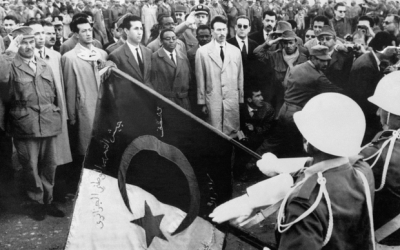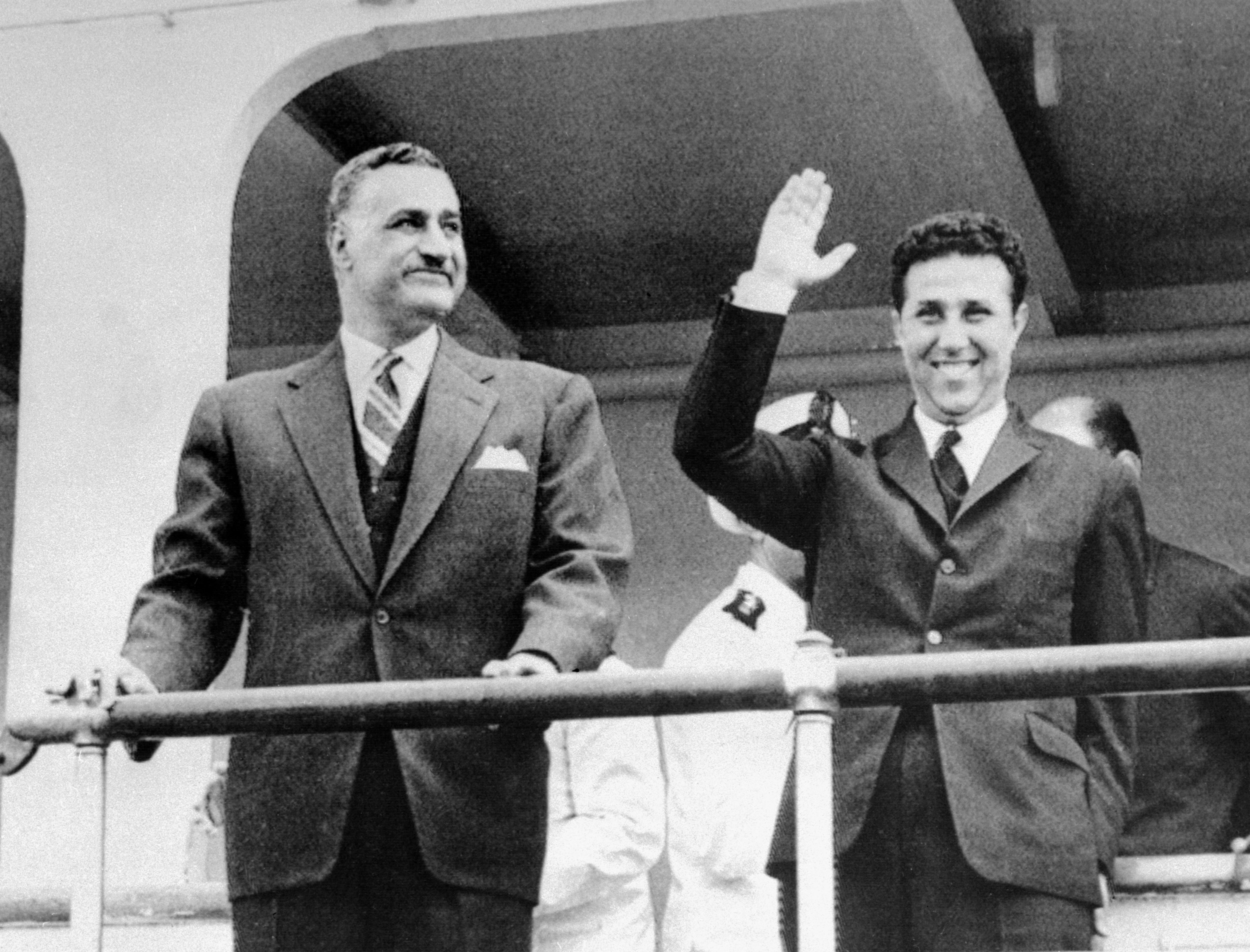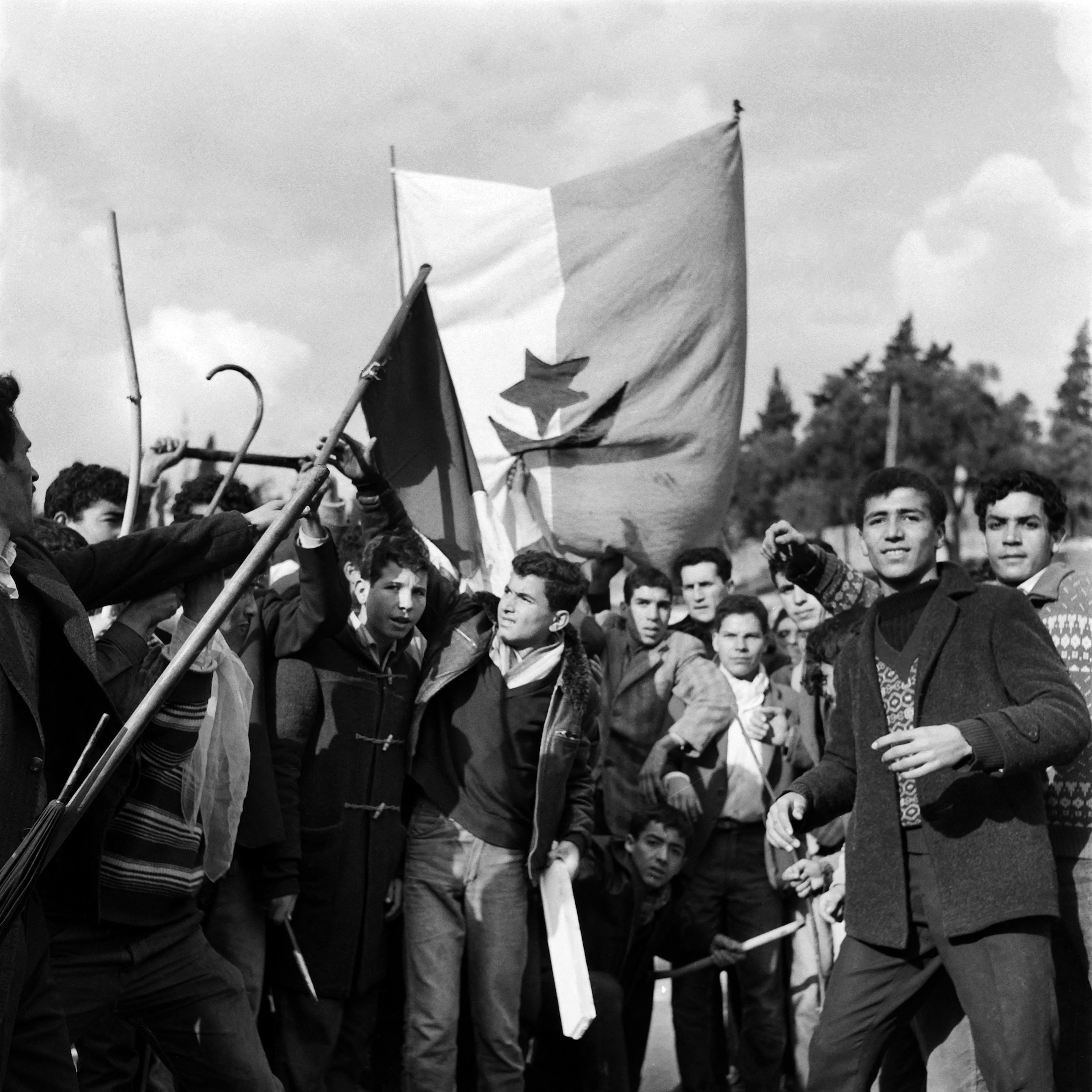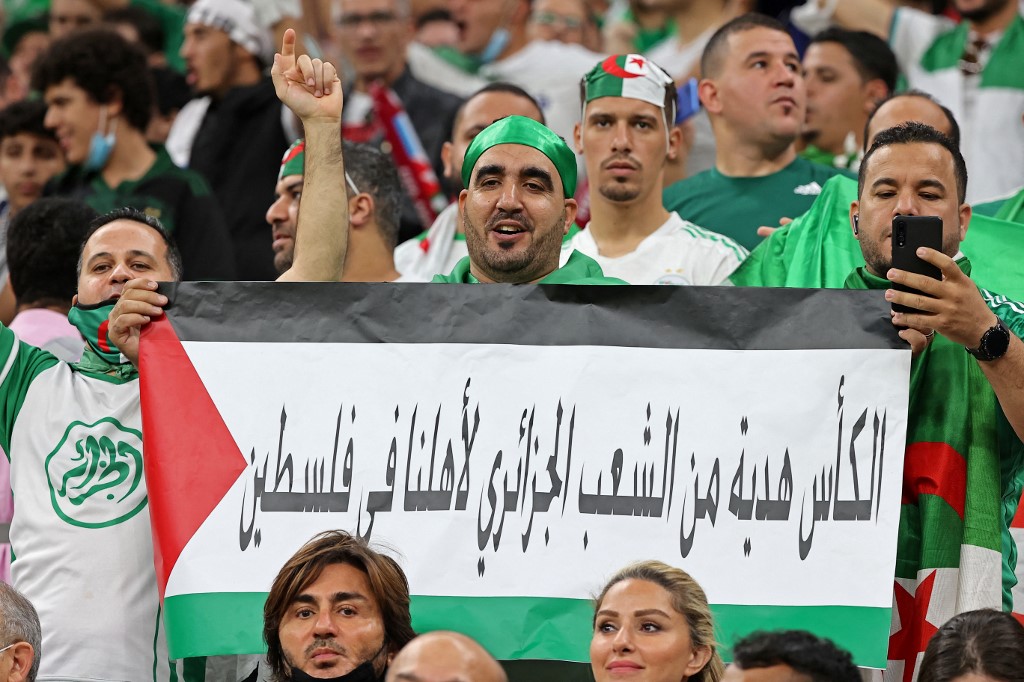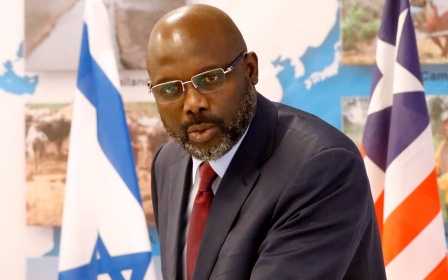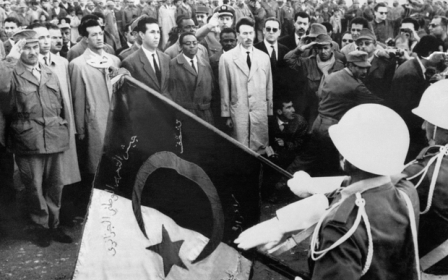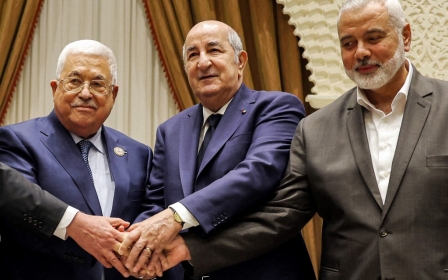Algeria, Israel and the last European settler colony in the Arab world
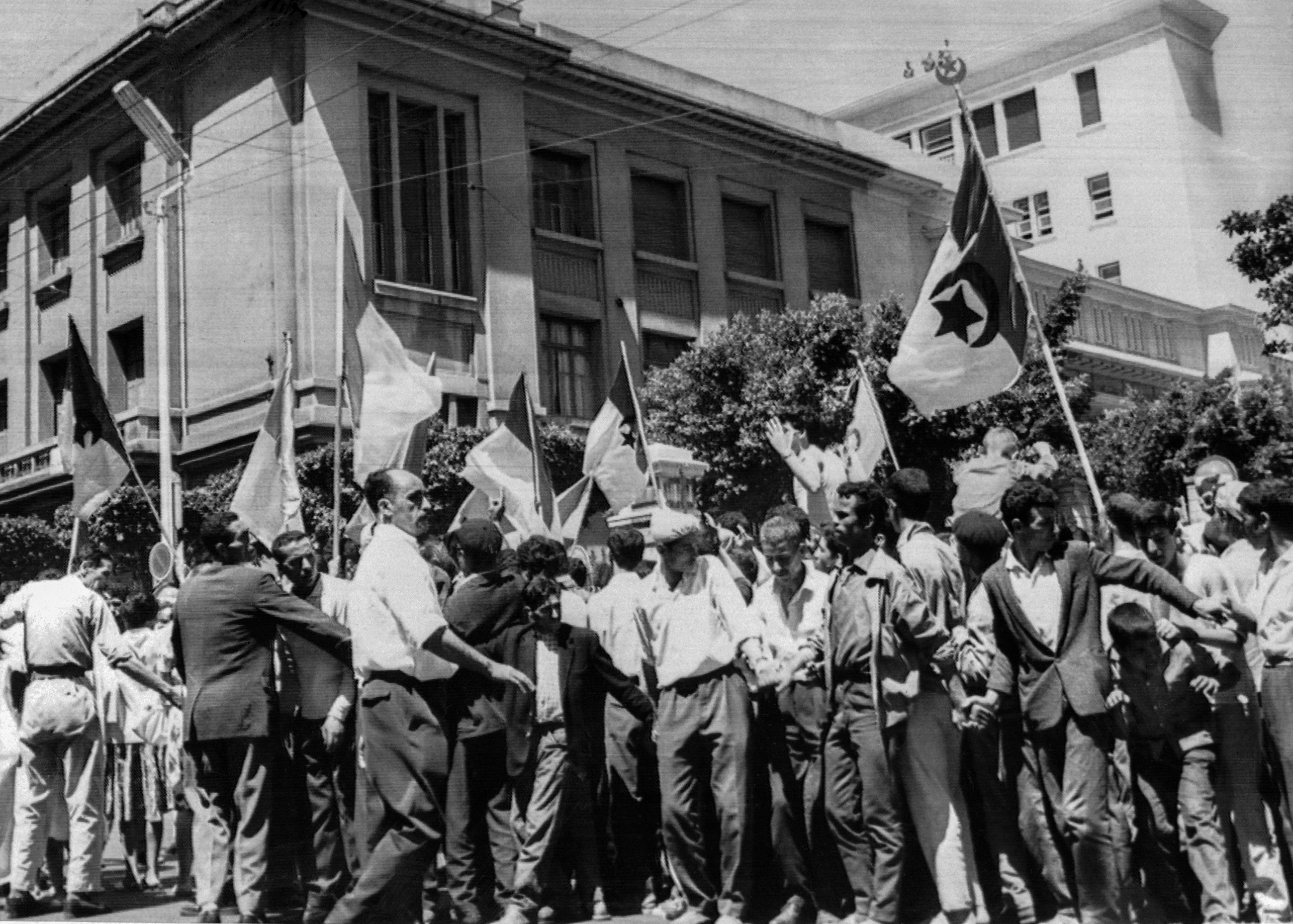
Last week, Algeria celebrated 60 years of independence from more than a century of French settler colonialism. France’s genocidal war against the Algerian people cost, according to Algerian estimates, upwards of 1.5 million dead and wounded.
The French depicted their conquest of Algeria as a “return” to the Roman Empire and a recovery of Roman lands. By 1962, Algeria had more than one million French colonists - one ninth of Algeria’s population.
Of the five European settler colonies established in Arab countries, only Algeria and Palestine remained colonised in the early 1960s
Charles De Gaulle expressed concern privately that if Algerian independence was not granted, France would be unable to “absorb 10 million Muslims who would soon become 20 million and then 40 million.” He feared France would cease to be what it is, “a European people of the white race, Greek and Latin culture, and the Christian religion,” and that churches would be replaced by mosques.
He had already warned a Gaullist deputy: “Do you see yourself marrying our daughters with Arabs?”
Independence would bring equality between the colonists and indigenous Algerians, but the colonial settlers would have none of it. Horrified by the prospect of equality and the loss of colonial and racial privileges, they opted to return to France where their white privilege would be preserved.
New MEE newsletter: Jerusalem Dispatch
Sign up to get the latest insights and analysis on Israel-Palestine, alongside Turkey Unpacked and other MEE newsletters
Of the five European settler colonies established in Arab countries since the 19th century, including Tunisia, Libya, and Morocco, only Algeria and Palestine remained colonised in the early 1960s.
One settler colony down
When Algeria was liberated in 1962, the Arab public mood was jubilant: one more European settler colony down, one to go! Italy’s settler colony of Libya was the first to fall during World War II.
In 1911, the Italians had invaded the Ottoman territories of “Tarablus al-Gharb” (rendered by the Italians “Tripolitania”), Barqa (renamed “Cyrenaica”), and Fezzan, and began to call the territory, following the geographer Federico Minutilli, by the ancient Greco-Roman name: “Libia.” Italy immediately annexed “Libya” and began introducing colonists.
Like the French, the Italians depicted their colonisation as a “return” to the ancient lands of the Roman Empire. Libya was identified as Italy’s “Fourth shore”. Colonisation accelerated under fascist rule and, by 1940, the number of colonists exceeded 110,000 - 12 percent of the population.
By the time the Allies defeated the Italians, they had already brought about the wholesale destruction of cities and towns, not to mention famines and the spread of disease, which along with their mass murder of the resisting Libyans, obliterated up to two-thirds of Libya’s population.
About 50,000 Italian colonists remained at the end of the war. Libya became officially independent in 1951. The colonists’ new legal status required them to choose Italian or Libyan citizenship by 1960. Adamantly rejecting equality and loss of racial and colonial privileges, the majority left. Those who remained repatriated to Italy by 1970.
As for Tunisia, it obtained its independence in 1956, five years after Libya, following a combination of anti-colonial guerrilla war and negotiations. Tunisia was occupied by France in 1881, and tens of thousands of colonists descended on the country.
By 1956, there were 180,450 French colonists and 66,909 Italian colonists. At least half the colonists were by then born in Tunisia. But by 1957, half the French colonists had left. Once more refusing to accept equality with the native Tunisians, the colonists began to depart quickly. By 1970, there were no more than 18,000 French and 7000 Italian colonists, most of whom would leave over the next few years.
Morocco, which the French invaded and occupied in 1907, gained independence in March 1956, the same month as Tunisia, after a long anti-colonial struggle.
In 1952, Morocco had 539,000 Europeans. The colonists began to lose their privileges in the next decade. Rejecting equality, most returned to France where their racial privileges were safeguarded.
A close alliance
As the last two European settler-colonial powers in the Arab world, France and Israel formed a close alliance to coordinate the preservation of their settler colonies.
Like France and Italy, the European Jewish Zionists claimed to be descendants of the ancient Palestinian Hebrews and to be merely “returning” to their ancient land. Israel, which established a Jewish majority by expelling the majority of the Palestinian people in 1948, voted against the 1952 UN resolution recognising Tunisian and Moroccan self-determination.
France’s military alliance with Israel and its hostility to Egyptian President Gamal Abdel Nasser increased, especially as the Egyptian leader became identified as the force behind the Algerian National Liberation Front (FLN).
This was coupled with the French ruling Socialists’ anti-Sovietism, as Nasser had become close to the USSR in 1955 after being rebuffed by the Eisenhower administration, which conditioned its good relations on Nasser’s normalisation with Israel.
Socialist pan-Arab nationalism was castigated by the French as reactionary and seeking to re-establish “Islamic” glories. By contrast, the pan-Jewishism of European Zionism, which sought to recreate the “Judaic” glories of the Palestinian Hebrews, who were appropriated as the ancestors of European converts to Judaism, was depicted as progressive and socialist.
For example, the Ashkenazi-Jewish settler-colonial institution of the kibbutz was seen not as an example of master-race socialism, but as a progressive alternative to Stalinism. By then, France was providing Israel with modern Mystère IV fighter jets, which it used against Egypt in 1956.
The France-Israel alliance
Despite ongoing secret negotiations between the French and the FLN leaders based in Cairo, the French military carried out on 22 October 1956 the second ever act of air piracy in history.
They intercepted over Algeria an aircraft carrying FLN political leaders from Morocco to Tunis, including Ben Bella, for one such secret meeting. The five captured FLN leaders were not released until 1962.
The French adopted plane hijackings from their allies, as the first act of air piracy was Israel’s seizing of a Syrian Airways civilian airliner in December 1954. The Israeli hijackers forced the plane to Lydda airport and held its passengers hostage, demanding the release of five Israeli prisoners of war in Syria - a practice at which the Israelis continued to excel for decades to come.
French generals explained that their alliance with Israel was part of the fight against the Algerians, and against Nasser
Against this background, France launched its invasion of Egypt with the British and the Israelis in 1956, an adventure that ended in their defeat and only increased Nasser’s popularity.
Frantz Fanon, who had joined the FLN, explained France’s motivations: “The Suez expedition was meant to strike the Algerian Revolution at the summit. Egypt, accused of directing the struggle of the Algerian people, was criminally bombarded.”
France’s early alliance with Israel intensified in 1952 when its embassy opened in Tel Aviv. That the two countries remained the only European settler colonies on Arab lands was paramount in their calculations.
French generals explained that their alliance with Israel was part of the fight against the Algerians, and against Nasser. Much of the intelligence France received on Egyptian arms shipments to the FLN came from Israel, which enabled France in October 1956 to seize the Sudanese-flagged ship Athos, carrying arms for the FLN, in international waters off the coast of Morocco. The alliance was so strong that Israel even participated in joint military manoeuvres with France on Algerian territory.
After his 13-month stint as France’s governor general in Algeria, Jacques Soustelle helped create and lead the pro-Israel lobbying group Alliance France-Israel in November 1956. This followed the tripartite invasion of Egypt.
Meanwhile, the grand rabbi of France lobbied the New York Times on behalf of the French against Algerian independence and obtained “a promise from a senior New York Times editor to continue faithfully supporting the French line during UN debates.”
In 1958, Soustelle enjoined not only Israel but world Jewish communities to support French colonial apartheid in Algeria: “We believe that, given the influence which not only Israel but above all the Jewish communities throughout the world exert on international opinion, this alliance would produce happy results for us.” Soustelle joined the terrorist settler Secret Armed Organisation (OAS) in 1960 to fight against Algerian independence.
Adopting Israeli tactics
The alliance not only provided arms and military training to the Israelis, it allowed the French themselves to learn Israeli tactics, including the Israeli practice of “convoy bombing,” which the French used in Algeria.
French officers were dispatched to Israel to learn psychological warfare techniques. General Maurice Challe, commander-in-chief of the French forces in Algeria (1958-1960), insisted that the Israelis were “consummate artists” at dealing with the Palestinians.
Challe hoped to use the racist kibbutz as a model for his pacification programme in Algeria, but independence prevented his plan from being realised. Israeli study missions went to Algeria to learn how the French used helicopters to fight the Algerian guerrillas.
Challe, like other generals who were friends of Israel, participated in the failed settlers’ coup of April 1961 against the French government and was tried by a military tribunal. Testimonies from at least one participant in the failed coup stated that the coup leaders expected support from “Portugal, South Africa, South America [sic], and perhaps Israel”.
The OAS abandoned its traditional antisemitism to establish an anti-Muslim popular front. The OAS members argued that granting Algeria independence was part of an international conspiracy to “strangle the state of Israel”, and smacked of antisemitism. Not to be outdone, the prime minister of Israel, David Ben-Gurion, advised the French in 1958 that Algerian Arabs “no matter how assimilated” were not to be trusted.
A number of Algerian Jews, contra Israel, contributed financially to their country’s liberation struggle and joined its ranks
Unhappy with its isolation as the last European settler colony in the Arab world, the Israelis provided logistical support to the French colonists, including support for Soustelle, who had Ben-Gurion’s backing and was financed by wealthy right-wing pro-Israeli American Jews who opposed De Gaulle and Algerian independence.
A number of Algerian Jews, contra Israel, contributed financially to their country’s liberation struggle and joined its ranks, including doctors and lawyers.
Anti-colonial Algerian Jews welcomed the FLN’s official statements in 1956 addressed to the Jewish community leaders declaring their belonging to the Algerian nation. Small groups of Algerian Jews affirmed in response that they were one with their Muslim compatriots and that they wholeheartedly supported liberation.
Other groups, however, formed Algerian Jewish commandos and organised themselves in Oran against Algerian Muslims. They sought partition of the colony along “racial” lines.
They were said to be inspired in their quest by Israeli government policy. Israel conscripted at least one Algerian Jew, who had joined the OAS, into Israel’s spy network, namely one of the OAS leaders, Jean Ghenassia, who had contacts with Israeli agents, for which he was later prosecuted by the French.
Encircling Algeria
After independence, Algeria became the biggest supporter of global resistance to settler colonialism, in Palestine and across Africa – Angola, Mozambique, South Africa, Namibia, and Rhodesia.
The meeting organised by the Algerian leadership during last week’s celebrations between the leader of Hamas, Ismail Haniyeh, and PA President Mahmoud Abbas, who collaborates with Israel, though misguided, was motivated by Algeria’s continued support for the Palestinian struggle.
In the last few years, Israel’s normalising relations with Morocco and Sudan, and its work behind the scenes to normalise relations with Tunisia and some of Libya’s regional leaders, are part of its strategy of encircling Algeria, which adamantly refuses to abandon the Palestinian struggle and normalise with Israel.
The terror the Israelis felt after the Algerian people’s victory was such that Israel’s foremost general Ariel Sharon kept a copy of Alistair Horne’s classic account of the Algerian struggle, A Savage War of Peace, on his nightstand.
On this 60th anniversary of Algeria’s liberation, perhaps Israel’s other leaders should acquire better historical lessons.
The views expressed in this article belong to the author and do not necessarily reflect the editorial policy of Middle East Eye.
This article is available in French on Middle East Eye French edition.
Middle East Eye delivers independent and unrivalled coverage and analysis of the Middle East, North Africa and beyond. To learn more about republishing this content and the associated fees, please fill out this form. More about MEE can be found here.



